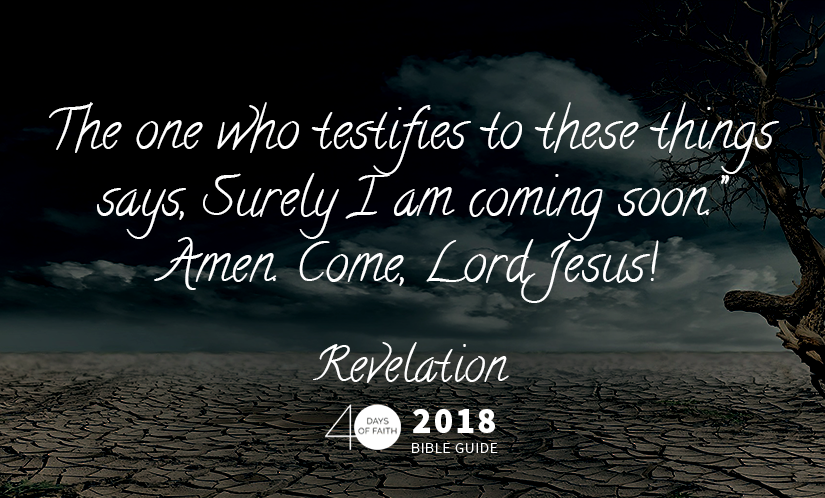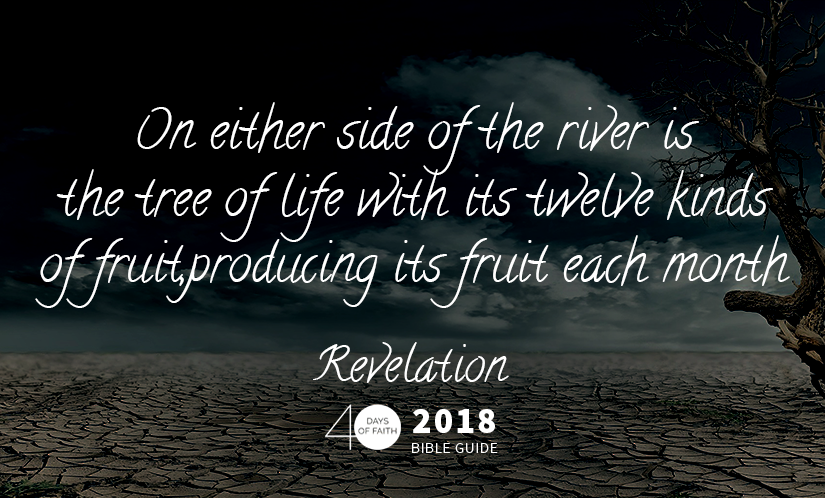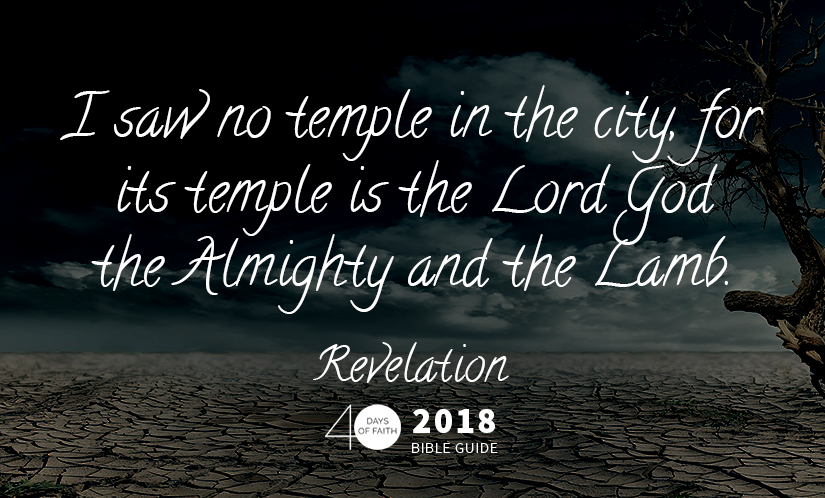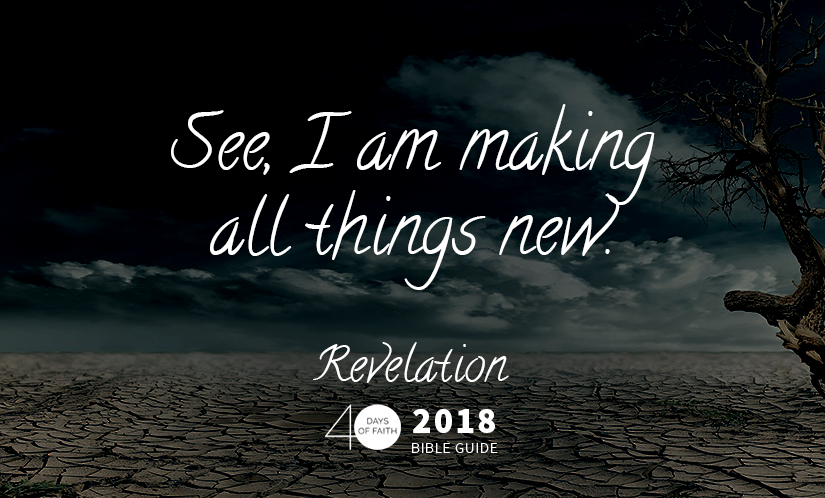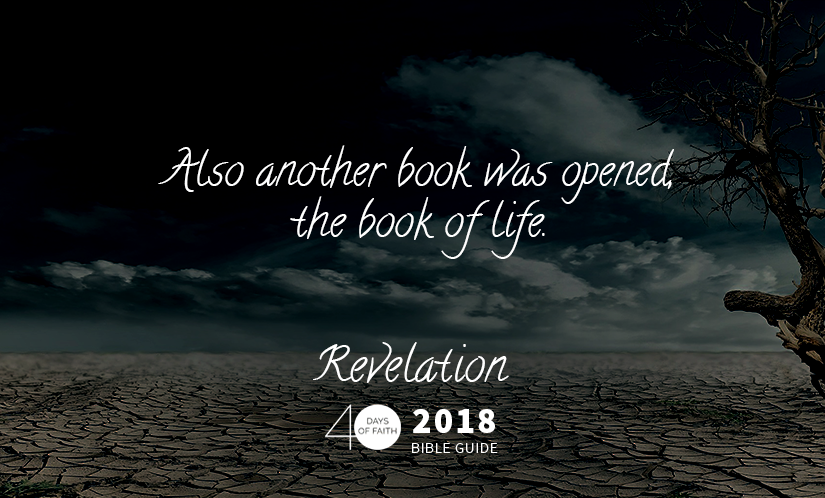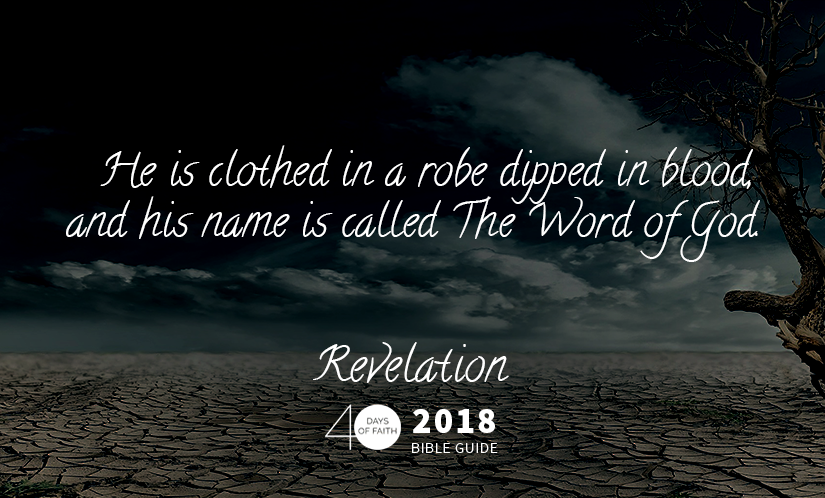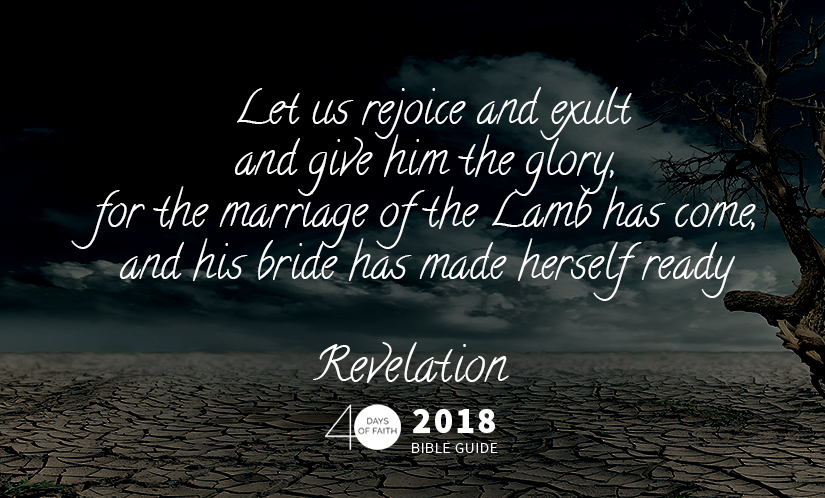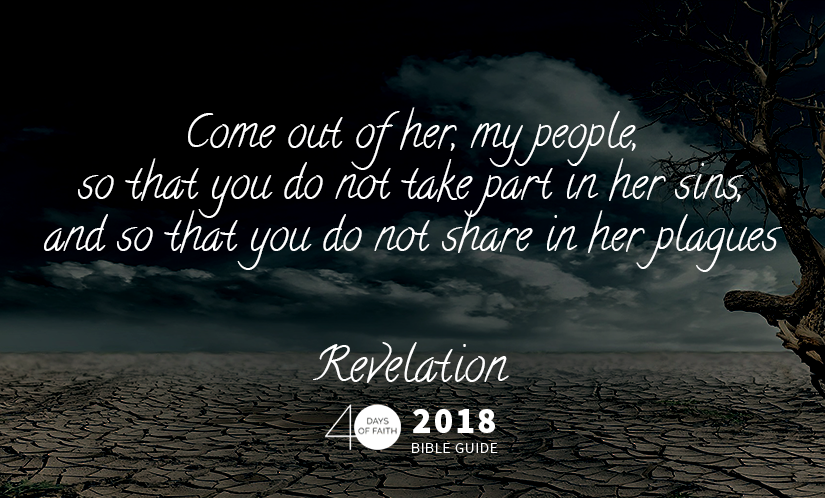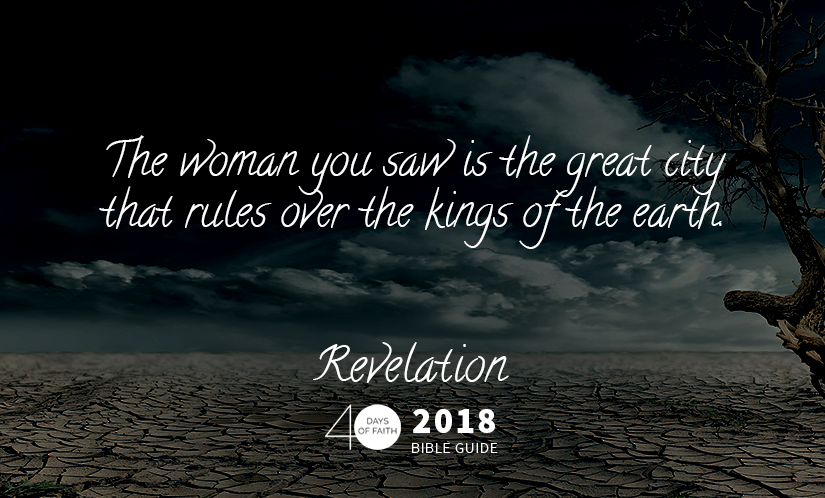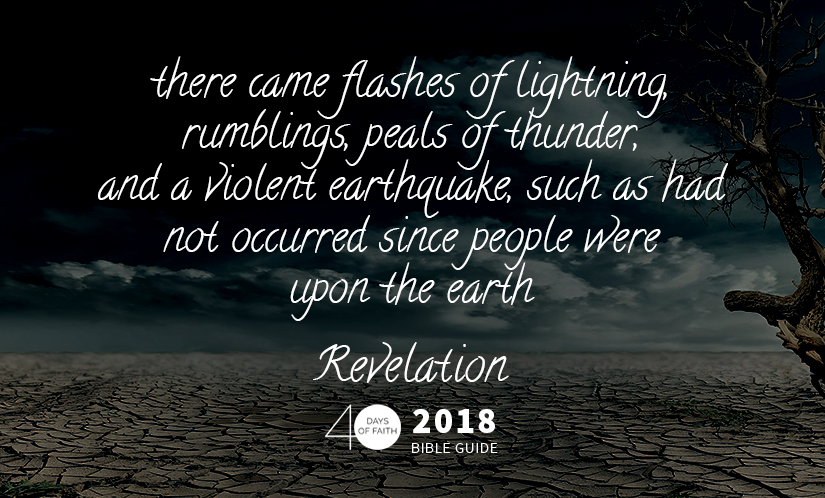Previously in Revelation
7“See, I am coming soon! Blessed is the one who keeps the words of the prophecy of this book.”
Day 29 – 6th Friday
Revelation 22:8-21
8I, John, am the one who heard and saw these things. And when I heard and saw them, I fell down to worship at the feet of the angel who showed them to me; 9but he said to me, “You must not do that! I am a fellow servant with you and your comrades the prophets, and with those who keep the words of this book. Worship God!”
10And he said to me, “Do not seal up the words of the prophecy of this book, for the time is near. 11Let the evildoer still do evil, and the filthy still be filthy, and the righteous still do right, and the holy still be holy.”
12“See, I am coming soon; my reward is with me, to repay according to everyone’s work. 13I am the Alpha and the Omega, the first and the last, the beginning and the end.”
14Blessed are those who wash their robes, so that they will have the right to the tree of life and may enter the city by the gates. 15Outside are the dogs and sorcerers and fornicators and murderers and idolaters, and everyone who loves and practices falsehood.
16“It is I, Jesus, who sent my angel to you with this testimony for the churches. I am the root and the descendant of David, the bright morning star.”
17The Spirit and the bride say, “Come.”
And let everyone who hears say, “Come.”
And let everyone who is thirsty come.
Let anyone who wishes take the water of life as a gift.18I warn everyone who hears the words of the prophecy of this book: if anyone adds to them, God will add to that person the plagues described in this book; 19if anyone takes away from the words of the book of this prophecy, God will take away that person’s share in the tree of life and in the holy city, which are described in this book.
20The one who testifies to these things says, “Surely I am coming soon.”
Amen. Come, Lord Jesus!
21The grace of the Lord Jesus be with all the saints. Amen.
Points of Interest
-
- “I am a fellow servant” – For the second time, John falls to his feet to worship one of God’s messengers. It seems easy for people, while on a search for beauty and goodness and truth to emulate and admire, to stop short of the source of it all and fixate on something else instead. Here the angel urges John – and us – to find our center in God.
- “Let the evildoer still do evil… and the righteous still do right” – Verses eleven and fifteen are a final assurance of the exclusion of unwilling to change evil and a final urge to separate from the worst ways of our world. A few centuries into church history, Christian churches got less interest in the ongoing pilgrimage of pursuing Jesus and more interested in acquiring power and aligning with the interests and privilege of state power. John would see that as a tragedy. Revelation urges us to be joyfully in our world Jesus is renewing while also removing ourselves from its worst practices.
- “to repay according to everyone’s work” – It’s a tragedy that one of the upshots of Revelation has been a focus on details we can’t know about the future, hoping that somehow they’re hidden in Revelation, like buried treasure. Revelation’s purpose it to help us prepare, though, not predict.
- “Blessed are those who wash their robes” – The call for the churches and their members is to resist and so to conquer, but more than that, to take a shower. Connect with Jesus – learn from Jesus, love Jesus and let Jesus love you, be baptized, but none of this as a one-off or a phase. Keep going to Jesus when you fall, keep going to Jesus when you’re afraid, keep going to Jesus when you need forgiveness, keep going to Jesus.
- “everyone who hears say, ‘Come.’” – The Kingdom of God, the new heaven and earth that Jesus is making, is nothing if not a place of constant invitation. Come. Be filled. Drink life. Be satisfied. You are welcome. Come.
- “if anyone takes away from the words of the book” – Before copyright, this is the kind of thing you’d drop on the end of your scrolls to make sure the scribes don’t change your words. John’s a little harsh, though, having a hard time lightening up at the end.
- “Surely I am coming soon” – John quotes Jesus saying this for the second time. What is soon, though? Greek had two words for time – chronos and kairos. Chronos is chronological time we can measure in seconds or years or centuries. Kairos, though, means the right time, or the time of importance, as in “the times” we live in or “the time of our lives.” We don’t know in what year Jesus will return or how. We also never know when we’ll experience Jesus in time, but we know it’s always soon. Walker Percy, in his novel The Second Coming, wrote “Is it possible for people to miss their lives in the same way one misses a plane?” He described this in a person as he wrote, “Not once in his entire life had he allowed himself to come to rest in the quiet center of himself but had forever cast himself forward from some dark past he could not remember to a future which did not exist. Not once had he been present for his life. So his life had passed like a dream.” May we not obsess over chronos, gripped by anxiety, and miss our lives as they pass like dreams. May we live in God’s eternal now, expectant of Jesus’ returning or enjoying the foretaste of Christ with us already.
- “Come, Lord Jesus” – Before closing with a words of comfort, love, and encouragement, John gives us a core prayer of the life of faith. Come, Jesus, in the future. Come, Jesus, you have been here before. Come, Jesus, in this moment of expectation and hope. In this moment, Jesus, come.
Spiritual Exercise
This week, as Easter approaches, and Revelation climaxes with its vision of a new heaven and a new earth, we’ll look to cultivate hope. Take some time and use your imagination to cultivate hope. Picture yourself walking alongside the river of the water of life, sampling the orchard’s abundant fruit, applying the balm from their leaves to any inner or outer wounds. What does this feel like? Take your time. Now picture yourself face to face with God, who is full of light. What do you experience? What do you do or say? What does God have to say to you? What expression is on God’s face?
A Direction for Prayer
Pray for people and groups you are aware of who are most wounded, most oppressed or outcast or hurt. Ask Jesus to grow the orchard of fruit and healing in their lives. Ask Jesus to flow toward them the river of life that begins in God’s self. Pray for God’s presence and healing for them.
The Bible Guide
This blog post is part of a Lenten journey through the book of Revelation. Every year during the season of Lent, we take a focused look at a portion of Scripture as part of our communal spiritual practice. This year, we are exploring what it means to be Children of God in a Fractured World, with Revelation as our lens. On Sundays, we’re exploring this with our sermons; on weekdays, we’re doing so with our bible guide. The bible guide series starts here.


